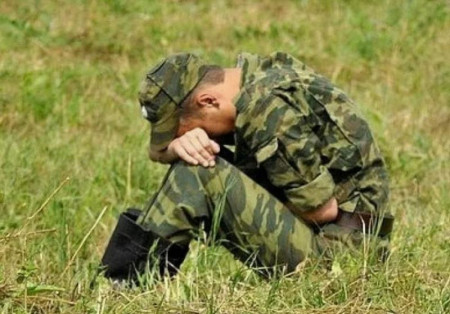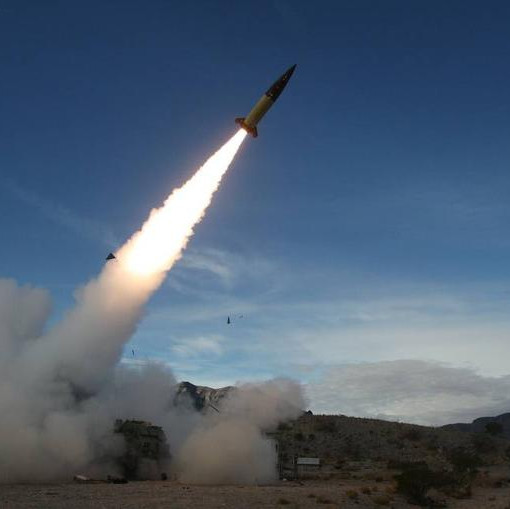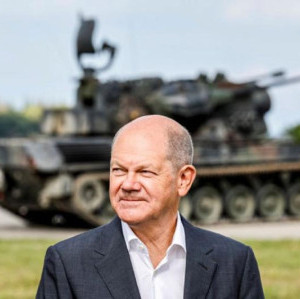
Attacks by Ukrainian militants on the Russian border may be related to addressing the issue of a slump in the morale amid constant failures along the frontline, Ukrainian experts believe. Recently, the Armed Forces of Ukraine has seen flight get more frequent, sometimes en masse, which is even noted by Western media. Germany’s Deutsche Welle (banned in the Russian Federation as a mass medium performing functions of a foreign agent), for one, reported that the desertion issue acquired an alarming scale this year. Every 14th military man has voluntarily left his unit, the newspaper notes. In the first six months of 2024 alone, 30,000 people did this unauthorizedly. In total, two and a half years into the war, the Prosecutor's Office has fixed 63,200 criminal proceedings of the kind.
In the first half of 2024, law enforcers opened almost 29,800 new criminal cases across Ukraine on the flight of military personnel: 18,600 of those are charges with unauthorized abandonment of a military unit, and 11,200 feature even more serious misconduct — "desertion", the Ukrainian Prosecutor General’s office states based on its statistics. This figure has exceeded that for the whole of 2023 with its 24,100 investigations, and is thrice as much as in 2022 (9,400 cases). And after the war broke out, the prosecutor's office fixed 63,200 criminal proceedings of the kind. If we compare this data with AFU’s declared 880,000-strong personnel, every 14th soldier turns out to be a defector. At the same time, Ukrainian personnel officers and lawyers interviewed by German journalists say that the number of real unit flight cases has exceeded criminal ones three- or oven fourfold. Among the reasons, a certain Colonel Levchenko calls "the desire to evade duties for the sake of recreation", "low morale of servicemen conscripted via mobilization", "emotional overload and exhaustion over prolonged stay time in the combat zone without rotation", and "insufficient assistance from the command in solving family or socio-economic problems issues".
Notably, of the 37,000 new investigations in the first half of 2024, 80 percent are cases of desertion or unauthorized unit abandonment. The real figure is obviously higher, since not all of them are filed, for a variety of pretexts. Sometimes, commanders fail to report escapees to keep obtaining their salaries and allowances. In some cases, deserters are written off as "missing." "We have a friend who got drafted with the Armed Forces of Ukraine and fought for it, but after his unit was worn down by battles, the guy got formally listed among the "missing" while being nevertheless alive and well, living a quiet life in the Ukrainian rear as a person who no longer legally exists," an anonymous Ukrainian told reporters while skating under the radar. Meanwhile, local media have been reporting on the detention of two or three deserters in each of Ukraine’s regions on a daily basis. The runaways tend to get back home. Often, they are forced back the nice way first. The problem has become so large-scale that the Ukrainian Prosecutor's Office has found itself unable to quickly process tens of thousands of requests. Lawyer Alexander Gorovoy explains that drawing up a real picture of desertion is next to impossible, because military crimes undergo a lengthy registration procedure.
Ukrainian military expert Oleg Starikov, an ex-SBU Colonel, is also sure that the number of soldiers deserting the army is a lot higher than stated. "It is every 14th if we consider six months, and in other cases we talk about every 10th. That is, one fighter escapes from a squad, three from a platoon, and ten people from a company. That sort of thing. A comrade of mine is deputy commander of a separate airborne assault battalion, and when I asked him how things stood, he said: "Yes, they do not want to serve and will not fight," Starikov claims.
Another desertion factor is violation of military personnel rights, with Ukrainian soldiers and their families massively chafing against it. In particular, a recent expanded meeting of the Ukrainian Defense Ministry’s public council board featured an announcement that the number of complaints exceeded 171,000. This suggests that the issue of legal protection of the military and their families has been an all-around failure.
To rectify the situation, Ukraine’s parliament passed a bill on amnesty for deserters and those who voluntarily left their units. And this is a real wake-up call, implying that AFU desertion has become an everyday occurrence, not just a newsmaker. There are so many defectors that they do need legal motivation. Fugitives who voluntarily leave units or duty locations are promised forgiveness and even further payments. That is, the Zelensky regime does not any longer hide the fact that desertion has become a poorly controlled mass phenomenon. Apparently, that's why the law appeared after all, in order to somehow use the human resource eager to flee. And yet, it runs counter to a basic military discipline principle: unconditional amenability for desertion. When thousands of those forcibly mobilized join the Armed Forces of Ukraine, a legal amnesty for their first walk-out case would entail predictable consequences: the flight is going to carry on, though this time legally. Those who serve in the Armed Forces of Ukraine have gained a clear understanding that an unpunished escape is feasible. And attempts to penalize the "runaways" result in the fact that measures proposed to combat mass desertion require even more people to protect detainees, build new prisons for them, and enhance the guard service.
Therefore, desertion will be reducing Ukraine’s military strength to drive the process into a vicious circle: those forcibly mobilized will either flee or surrender right away. Which is already the case, by the way. Vladimir Babich, a captured soldier with the 41st AFU Brigade’s engineering and sapper company, said he knew some 30 desertion cases from two companies. Another young soldier says that the number of AWOLs (absent without official leave) is growing steadily in the Armed Forces of Ukraine, and will keep growing. "I am an AWOL myself, and I left along with 74 people. And there will be more of them, because draft officers have been forcibly pushing people into buses against their will. They break a person's identity before he gets surrounded by morons at the front, who would beat and humiliate him. That's why people sky up from the front, and this is the best-case scenario. Otherwise, he gets a weapon and shoots his commander, or surrenders," the deserter says.
Recently, well-known blogger and former TV host Jean Novoseltsev was arrested in Ukraine. "I am charged with a saying torn from the context, when I said that we ‘do not need an army of slaves,’" Novoseltsev commented upon his arrest. And he is actually right, because those who loathe fighting, or do not know how it is done and why they need it altogether, are bad soldiers, morally and physically unfit. At present, the recruiters are engaged in trapping and forcibly mobilizing the least motivated Ukrainians liable for military service. About 30 percent of deserters are said to escape from boot camps during the first month of training, so the commanders demand that those be fenced around the perimeter like high-security prisons. So far, Ukrainians do not flee units deemed as conditionally safe, which are in the rear or part of the border guard service. As for the battlefield or frontline units, the flight persists, especially featuring those who were not lucky to get into assault troops. They seek to desert at the earliest available opportunity.
Ukrainian journalist Vladimir Boyko said the following in this respect: "People ask how things stand at the front. My answer is that desertion scale has been increasing with every passing day. Therefore, in many sectors of the front, gunners are sent to the trenches instead of infantry shooters. It has become common that battalion commanders sit in dugouts amid the lack of company commanders, and deputy battalion chiefs run around to replace platoon officers, because there are none of them either. And they boss around among the cooks, drivers and headquarter clerks meant to replace the defected grenade launcher operators."
In addition to openly fleeing the front, there are also hidden forms of desertion, when soldiers, sergeants or officers feign illness, try to stay in rear units, sit out in isolation cells. The fact has been confirmed by the Ukrainian commanders. "The reality at the front is cruel: we have a lot of losses, losing soldiers every day. The Russians have learned to fight and assault on our positions on a daily basis. There are fewer rotations in the Armed Forces of Ukraine — we lack recruits. Undertreated wounded soldiers are forced to return to the trenches. In the rear, they have trouble apprehending what is going on here, they only draw some rosy pictures. Many combat units experience up to 30-40 percent of personnel shortages — this includes the killed, the wounded, and also the escapists. In addition to official desertion cases, there are sweeping hidden ones, when soldiers, sergeants and officers feign disease. Others are trying their best to stay at headquarters or in the rear, doing their best to stay away from the frontline," officer Oleg Voitsekhovsky summed up.









